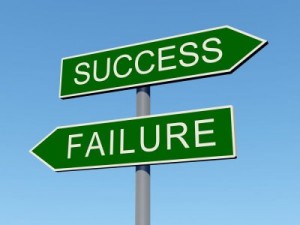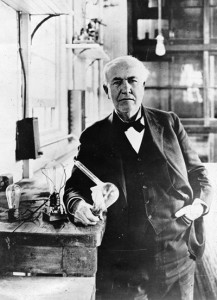 “I didn’t get accepted into the show.”
“I didn’t get accepted into the show.”
“I didn’t make the cut for the team.”
“I wasn’t picked for the promotion this year.”
You’re disappointed. You expect a “Yes” and, instead, receive a “No”. Sometimes you think you’re a shoo in, other times you raise the bar and take a risk. In either case, you fall short.
What does this all mean? Now what? You might get distracted by feelings of disappointment, frustration, or in some cases, humiliation. However, after you suffer the shock and sadness (or anger) and the sting wears off, it’s important to move past the paralysis of your negativity. You need to reframe, refresh and refocus on your goal. Decide to view the experience in a larger perspective.
Philosophically, to grow, you must take risks, stumble, learn from experience and move to a higher level. How many times do youngsters fall before they walk? A child’s physical growth and development doesn’t happen overnight. Neither does an adult’s learning curve. Regardless of the field, you need to find challenges, take appropriate risks and use the feedback to decide how, when, why and with whom to further develop.
Failure doesn’t prove that you’re not good enough. A failure is one experience, not an evaluation of your worth as a person or professional. The learning from mistakes, blunders, failures and frustration comes as you review your past actions and attitudes in light of the current situation.
Here are some questions to address after a frustration or failure:
- Did I know the requirements?
- Did I have most of the prerequisite skills or experiences?
- Did I have a friend, coach or mentor to help me prepare?
- Did I react and respond in constructive ways?
- What lessons can be learned from this experience?
Here are some actions to take:
- Give yourself a break or time to calm down and relax. Reaching a state of lowered stress and emotionalism will allow you to use your logic and view the larger picture. You ask, “Is this an experience that requires a total shutdown? How will I view it in 5 months or years?”
- Recognize and respect the courage and effort you demonstrated to take the risk and throw your hat into the ring.
- Ask yourself, “How consistent is this experience with my most important goals? Should I continue to pursue?”
- Evaluate whether you need more knowledge, skill or experience.
- Construct a plan that includes the actions and timetable that are needed.
 There are scores of famous people who dealt with frustration and failure.
There are scores of famous people who dealt with frustration and failure.
A commonly used example is the story of Thomas Edison, who conducted more than 9,000 experiments before he was successful with the light bulb. He said, “If I find 10 thousand ways something won’t work, I haven’t failed. I am not discouraged, because every wrong attempt discarded is just one more step forward.”
Edison was a scientist. He set goals, kept records and learned from failures and mistakes. You can do the same on a less intense basis. The key is to look at disappointments as a source of feedback on your performance. Ask, “What aspects of my performance need to be maintained or modified?”
However, a word of advice: unless you’re a scientist, don’t make 9,000 attempts.
*************************************
Dr. Markel Offers Value-Driven Keynotes and Breakouts.
Download Dr. Markel’s Speaker One Sheet: GeriMarkelCorporateOneSheet-Print
Book Dr. Markel to Speak at Your Next Event? Connect Today!





